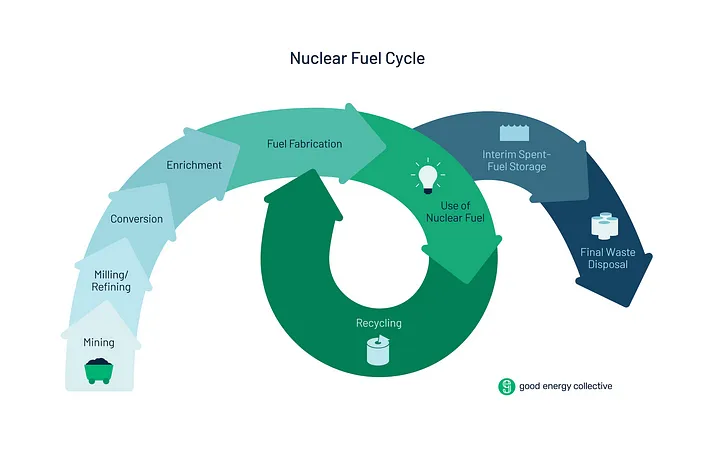Author: Kiersten Sundell

Did you know that nuclear waste is only waste if we waste it?
That’s a lot of waste.
What I mean is that after five years of use in a reactor, over 90% of the potential energy in spent nuclear fuel still remains untapped. France and Russia have extensive programs for recycling nuclear waste, so why doesn’t the U.S.?
The short answer: everything in politics and business is about money.
The fact of the matter is that it’s cheaper to mine new uranium and make new fuel since reprocessing is expensive. According to a recent estimate from Argonne National Laboratory, using reprocessed fuel would cost the current U.S. nuclear reactor fleet an extra $3 to $4.5 billion per year.
It’s the same reason why we don’t just recycle all of the plastic on the earth, churning out billions of tons of new disposables per year instead. Large-scale recycling would solve the global pollution crisis, cleaning up oceans and drinking water reserves, and it would provide new material for future plastic products to be made from. It’s a perfect solution — until you factor in the added cost.
Recycling spent fuel (and plastic) would require specialized facilities, a laundry list of regulatory permissions, and a supply chain that we don’t currently have.
That’s not to say it isn’t possible — supply chains are built from the ground up all the time, and investors could likely be enticed by the promise of profitable advanced reactors that run on reprocessed fuel. Microsoft and OpenAI are currently looking into advanced reactor development, and other billion-dollar corporations may follow suit.
A final reason why we don’t currently recycle waste is fear of proliferation. The U.S. briefly banned reprocessing in the 1970s partly for this reason, since extraction works with materials like plutonium. But there are MUCH more straightforward paths to getting nuclear material for bombs than the civilian nuclear power industry — just ask North Korea.
The bottom line is that recycling in the U.S. would be incredible, and most nuclear advocates want it to happen. While storing spent nuclear fuel isn’t a huge problem right now, anything that could create a more circular economy is undoubtedly an environmental win.
Check out our TikTok page to learn more!


